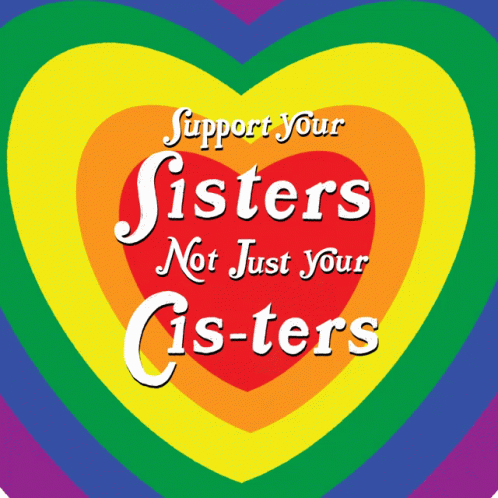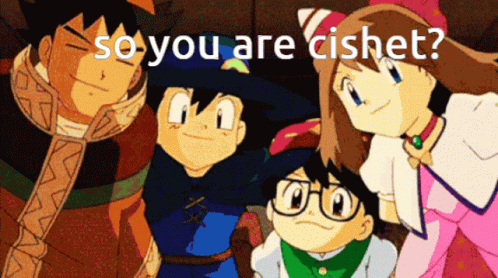What Does Cisgender Mean?
The term cisgender is a slang term that refers to someone who identifies with the gender they were assigned at birth. It is not an acronym or an abbreviation. For example, if someone was assigned female at birth and still identifies as female, they would be considered cisgender. The term was created to promote inclusivity and recognize that not everyone identifies with the gender they were assigned at birth. The prefix “cis-” means “on this side,” indicating that cisgender individuals align with the gender assigned to them at birth. It gained wider acceptance in the 2010s and was officially added to the Oxford Dictionary in 2015. Cisgender is not related to sexual orientation and does not have any sexual connotations. It simply refers to one’s gender identity. It is also not a typo or a mistake. It is intentionally used as a term to describe individuals who identify with their assigned gender. Here are some examples of how to use the term cisgender in conversation:
- “I’m cisgender, so I’ve never had to question my gender identity.”
- “She’s cisgender, but she’s a strong ally to the transgender community.”
- “As a cisgender person, I make an effort to educate myself about gender diversity.”
- “He’s cisgender, but he’s open-minded and supportive of gender nonconforming individuals.”
- “Being cisgender doesn’t mean you can’t advocate for transgender rights.”
In summary, cisgender is a term used to describe individuals who identify with the gender they were assigned at birth. It is not a sexual term, and it is not a typo. It is a way to acknowledge and include individuals whose gender identity aligns with societal norms.



What Does Cisgender Mean From a Girl?
When a girl uses the term cisgender, she is most likely using it in the same way as everyone else. Cisgender refers to someone who identifies with the gender they were assigned at birth, regardless of their biological sex. It is not specific to any gender and can be used by anyone.
Girls may use cisgender in various ways, such as:
-
Self-identification: Girls may use cisgender to describe themselves and their gender identity. For example, a girl might say, “I’m cisgender, so I’ve never had to question my gender identity.”
-
Describing others: Girls may also use cisgender to describe someone else’s gender identity. For instance, a girl might say, “She’s cisgender, but she’s a strong ally to the transgender community.”
-
Advocacy and support: Girls may use cisgender to show their support for gender diversity and transgender rights. They might say, “As a cisgender person, I make an effort to educate myself about gender diversity” or “Being cisgender doesn’t mean you can’t advocate for transgender rights.”
In general, girls use cisgender similarly to everyone else. It is a term that promotes inclusivity and understanding of different gender identities. Girls may use it to express their own identity or to show support for others.
If someone uses cisgender in conversation with you, it’s best to respond respectfully and acknowledge their identity. You can say something like, “That’s great that you’re comfortable with your gender identity” or “I appreciate your support for transgender rights.” It’s important to be open-minded and understanding when discussing gender identities.
Example 1:
- Girl A: I’ve never really questioned my gender identity. I guess I’m just cisgender.
- Girl B: That’s totally valid! It’s important to embrace who you are.
Example 2:
- Girl A: Have you met Sarah? She’s a strong ally to the transgender community.
- Girl B: That’s awesome! It’s great to have cisgender allies supporting us.
Example 3:
- Girl A: I’ve been educating myself about gender diversity lately.
- Girl B: That’s so important! As a cisgender person, we can all contribute to creating a more inclusive society.
Example 4:
- Girl A: Being cisgender doesn’t mean we can’t advocate for transgender rights.
- Girl B: Absolutely! We can all stand up for equality and support each other.
Example 5:
- Guy: I heard you identify as cisgender. Can you tell me more about it?
- Girl: Sure! It means that I identify with the gender I was assigned at birth. It’s just a way to describe my gender identity.
What Does Cisgender Mean From a Guy?
When a guy uses the term cisgender, it generally carries the same meaning as when used by anyone else. Cisgender refers to someone who identifies with the gender they were assigned at birth, regardless of their biological sex. It is not specific to any gender and can be used by anyone.
Guys may use cisgender in similar ways as girls, such as:
-
Self-identification: Guys may use cisgender to describe themselves and their gender identity. For example, a guy might say, “I’m cisgender, so I’ve never had to question my gender identity.”
-
Describing others: Guys may also use cisgender to describe someone else’s gender identity. For instance, a guy might say, “He’s cisgender, but he’s a strong ally to the transgender community.”
-
Advocacy and support: Guys may use cisgender to show their support for gender diversity and transgender rights. They might say, “As a cisgender person, I make an effort to educate myself about gender diversity” or “Being cisgender doesn’t mean you can’t advocate for transgender rights.”
In general, guys use cisgender similarly to everyone else. It is a term that promotes inclusivity and understanding of different gender identities. Guys may use it to express their own identity or to show support for others.
If someone uses cisgender in conversation with you, it’s best to respond respectfully and acknowledge their identity. You can say something like, “That’s great that you’re comfortable with your gender identity” or “I appreciate your support for transgender rights.” It’s important to be open-minded and understanding when discussing gender identities.
Example 1:
- Guy 1: Dude, I’ve never really thought about my gender identity before. I guess I’m cisgender.
- Guy 2: That’s cool, man! It’s important to understand and embrace who you are.
Example 2:
- Guy 1: Did you hear about that new documentary on gender diversity?
- Guy 2: Yeah, I watched it. As a cisgender guy, it really opened my eyes to different experiences.
Example 3:
- Guy 1: I saw this article about transgender rights. It’s so important to support the community.
- Guy 2: Absolutely! Being cisgender doesn’t mean we can’t be allies and fight for equality.
Example 4:
- Guy 1: I’ve been educating myself about gender diversity lately.
- Guy 2: That’s awesome, man! As a cisgender person, it’s important to be informed and understanding.
Example 5:
- Guy: I had a conversation with a transgender friend today. They shared their experiences with me.
- Girl: That’s great! It’s important to listen and learn from others.
- Guy: Definitely. As a cisgender guy, I want to be supportive and understanding.
Origin of Cisgender
The term “cisgender” is not a derived word or a popular typo. It was intentionally created to describe individuals who identify with the gender they were assigned at birth. The prefix “cis-” means “on this side” and is used to indicate that cisgender individuals align with their assigned gender. The term gained wider acceptance in the 2010s and was officially added to the Oxford Dictionary in 2015. It is not related to sexual orientation and simply refers to one’s gender identity.
Frequently Asked Questions
Slangs similar to Cisgender
Ignored, rejected, dismissed, overlooked, and snubbed are similar to cisgender because they all describe being ignored, rejected, or not taken seriously in their respective contexts. These terms are used to express the experience of being disregarded or excluded, just like how “PIED” is used to describe being ignored or rejected.
Is Cisgender A Bad Word?
No, “cisgender” is not a bad word or vulgar word. It is a term used to describe someone who identifies with their assigned gender at birth. It is a neutral term and is commonly used in discussions about gender identity and inclusivity.
Is Cisgender a Typo or Misspelling?
No, “cisgender” is not a misspelling or a typo. It is a valid term used to describe individuals who identify with the gender they were assigned at birth.





